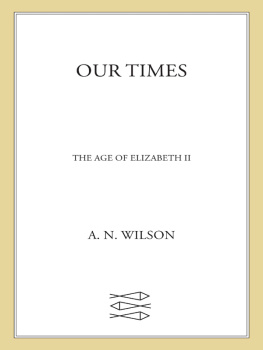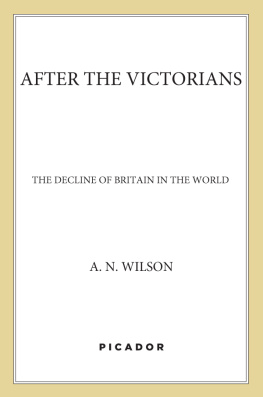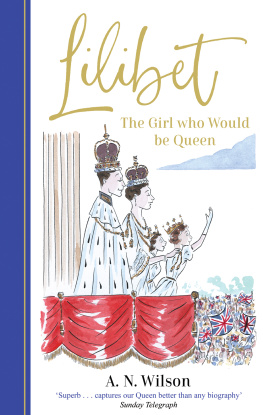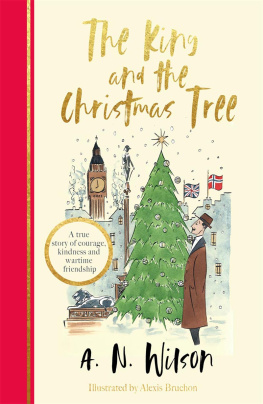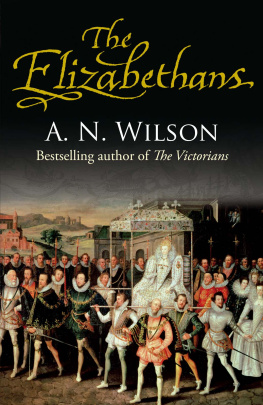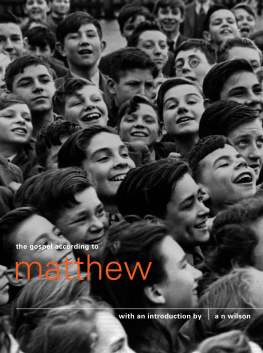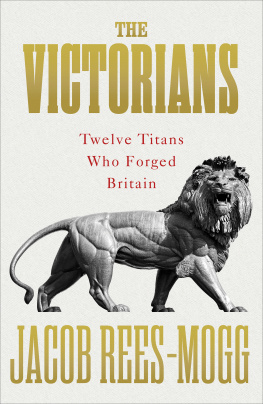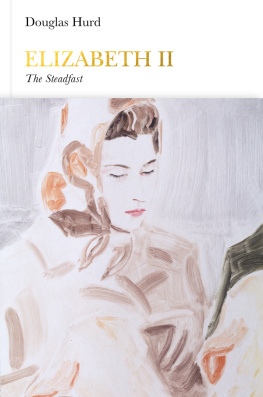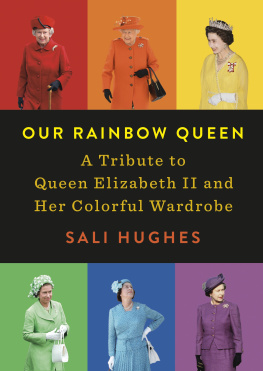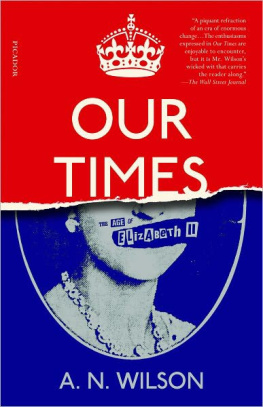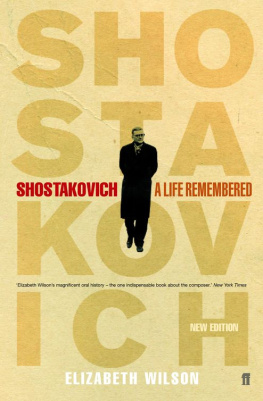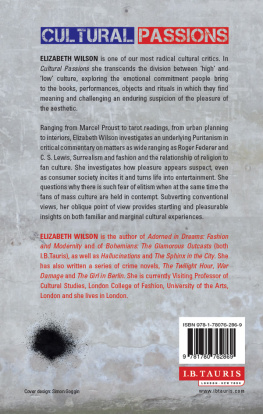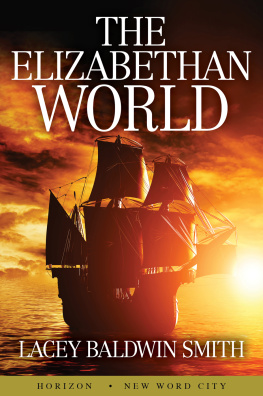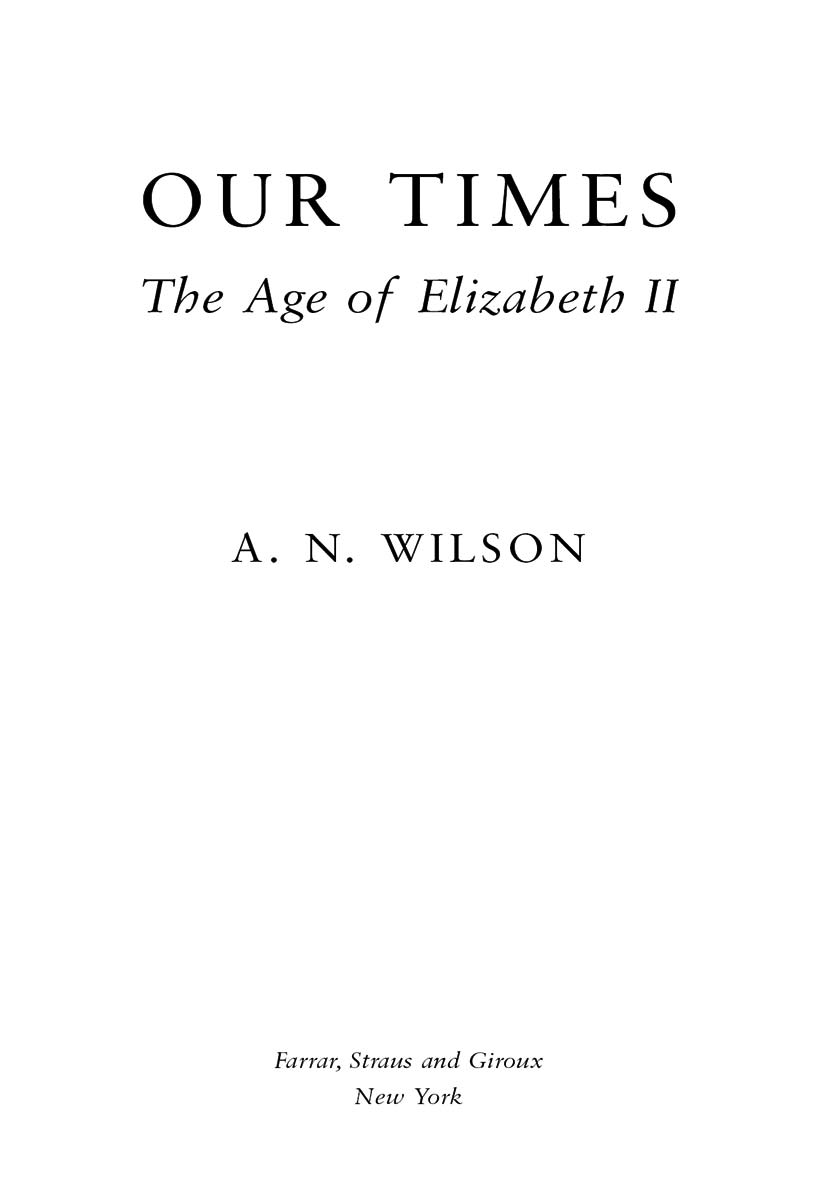Introduction
Queen Elizabeth II succeeded her father George VI on 6 February 1952. This story is not about her, but it covers the years of her reign which, at the time of writing, looks as if it might well rival that of Queen Victoria in longevity. (Victoria reigned for more than sixty-three years.) Already, the reign of Elizabeth II has encompassed so much change and has witnessed so many remarkable achievements that it makes her seem almost like a time traveller, spanning not just six decades, but whole centuries. The Britain of the early 1950s is so utterly different from Britain in 2008, when I lay down my pen, that it is bizarre to think that we have had the same Head of State as we did when rationing was still in force, and when Churchill was still Prime Minister.
But was this Queens reign, like that of Victoria, a time of British success, or of failure? Will this, the second Elizabethan era, compare favourably with that of her great-great grandmothers or not? The Age of Victoria was one in which Britain became the greatest world power. At the beginning of Victorias reign, the first waves of industrial and technological revolution had put Britain into a position in which she had no rivals in the fields of invention and industrial productivity. It only needed free tradewhich came about as a result of repealing tariffs on imported grain, the so-called Corn Lawsfor an amazing bonanza to take place.
Thereafter, for half a century, until Germany was united and began to catch up, there was no country on earth to match Britains wealth-producing capacity. At the same time, thanks to a combination of commercial enterprise, and a genuine desire to help the peoples of Asia and Africa, the British Empire came into being.
Nearly all this prowess, in terms of riches and political power, had evaporated by the time our own Queen Elizabeth came to the throne. Britain was not the true victor in the Second World Warit was the Soviet Union and America that emerged as the superpowers in the new global order. Indeed, the war (193945) against Hitler ruined Britain financially. At the time of Elizabeth IIs accession, there was a housing crisiswith many people living in slums, and others housed in prefabs which were an enterprising, and surprisingly comfortable, response to the shortage, but which look to the eyes of hindsight like huts in a Toy Town. There were fuel shortages. The nationalisation of coal and steel industries by the post-war Labour government guaranteed that industrial expansion in Britain would fall catastrophically behind her international competitors, and labour relations were deplorable for the first quarter century of the reignuntil Margaret Thatcher did the cruel but necessary thing and hammered the trades unions. When one considers the cold, the poverty, the sheer misery of post-war austerity Britain and compares it with the Britain of today, it is hard not to believe that an improvement has been accomplished which, in its way, is as amazing as anything the Victorians brought about. The standard of living of the average British family in 1952, when a twenty-five-year-old Princess Elizabeth succeeded to the throne, would seem harsh today even to Romanians or the poorest of the East Germans. Few families could afford to drink alcohol except on special occasions. Wine was unheard ofexcept on Christmas Day. Elizabeth David had not yet revolutionised the British palate and most of the food on offer in restaurants and hotelsassuming you were lucky enough to be able to afford itwas unpalatable. Foreign holidays were for the few, and even they were restricted in the amount of money that could be taken abroad, so that it was all but impossible to travel abroad for more than ten days without running out of cash. A quarter of British homes had inadequate sanitary arrangements, outdoor lavatories, and bathrooms shared with neighbours.
Over half the adult population over the age of thirty had no teethit was the received wisdom among dentists that it was better for your health to have dentures. The unhappily married stayed unhappy, unless they wished to go through the considerable expense and humiliation of a divorce, in which there always had to be a guilty party, and farcical scenes had to be enacted in hotel rooms with retired prostitutes, witnessed by private detectives, in order to provide the evidence of adultery.
Homosexuals were treated as diseased beings, and until the recommendations of the Wolfenden Report were passed into lawwhich did not happen fully until 1967two men over the age of twenty-one were in breach of the law even if they shared a bed in complete privacy.
The Lord Chamberlain still exercised censorship over the stage, and until the pantomimic Lady Chatterley trial of 1960, the law made no distinction between works of literature which dealt frankly with sexual matters and sordid pornography.
So, when we look back at the reign of Elizabeth II, and recognise the improvements in living standards, and the enormous increase in national prosperity, and in sexual liberty, it would be perverse not to rejoice.
Consider also the change in the position of women. For the first twenty-five years of the Queens reign, it was perfectly permissible for employers to pay women markedly less for doing the same jobs as men, and there were many jobs to which only very privileged women could aspire.
Before 1967, the only abortionists a woman was likely to meet were Vera Drakes with knitting needles, and before the advent of the Pill many women felt enslaved by marriage and family life.
By the beginning of the twenty-first century there existed a Britain which did not persecute unmarried mothers, did not hang those who may (or may not) have committed a murder, and did not compel the poor to live in slums. Though its overburdened health service was badly run and there were newspaper stories every week of dirty, badly run hospitals, this should not blind us to the extraordinary advances in medical science and the standards of medical care, which enabled many cancer patients to be cured, which can offer life-saving heart surgery which would have been undreamed of in 1953, and which allowed the ageing population to replace hips and knee joints at the taxpayers expense.
The second Elizabethan Age was a period in which the majority of the British basked in comfort, security and luxury. And if from time to time security was threatenedby IRA bombs, by the Brixton riots, or by Islamist terrorwhat was this compared to the wars which previous generations endured, with the British cities, and London especially, being nightly bombarded in the Blitz, and two generations, 191418 and 193945, seeing hundreds of thousands of civilians and service men and women killed in monstrous acts of war?

